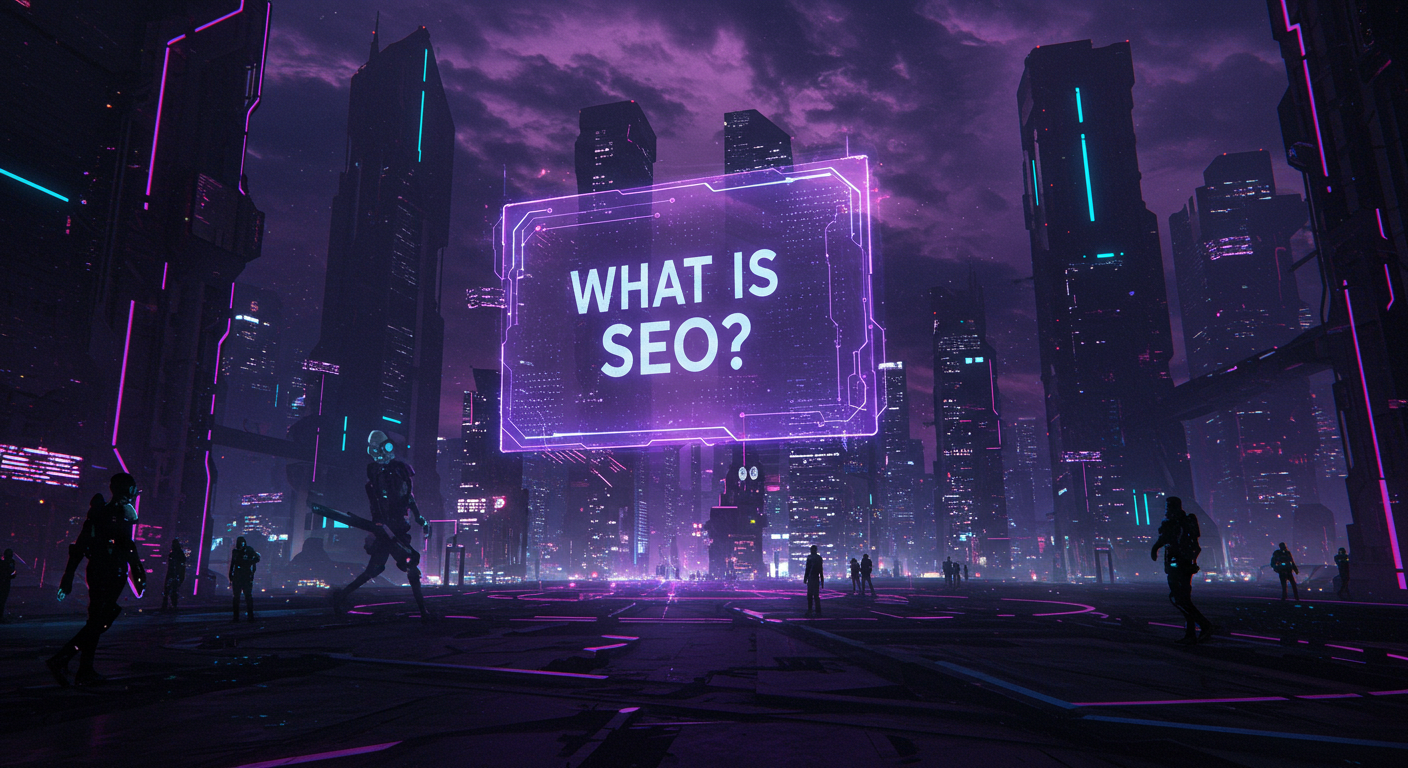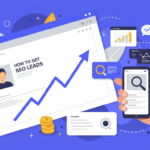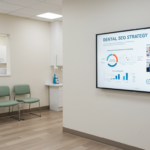
What is SEO? A Complete Guide for Businesses
If you’ve ever wondered why some websites appear at the top of Google while others linger on page five (or worse, nowhere at all), the answer lies in SEO. But what is SEO, really? And why does it matter for your business? Let’s break it down: no jargon, no fluff, just plain, actionable insights.
SEO 101: The Basics
SEO stands for Search Engine Optimisation. In simple terms, it’s the process of tweaking your website and its content to make it more visible to search engines like Google, Bing, or Yahoo. The higher your site ranks, the more organic (unpaid) traffic you’ll attract. Think of it as a digital shopfront: if your site isn’t optimised, it’s like hiding your store in a back alley instead of placing it on the high street.
But SEO isn’t just about keywords or meta tags. It’s a mix of technical adjustments, content quality, and strategic link-building. To get started, let’s explore the three core pillars of SEO:
- On-page SEO: Optimising elements on your website (e.g., content, headings, URLs).
- Off-page SEO: Building authority through backlinks and online reputation.
- Technical SEO: Ensuring search engines can crawl and index your site efficiently.
For a deeper dive into technical SEO, check out our expert guide on technical SEO.
How Does SEO Work?
Search engines use algorithms to analyse websites based on hundreds of factors. While the exact formula is a closely guarded secret, we know the key components:
- Relevance: Does your content answer the user’s query?
- Authority: Do other reputable websites link to yours?
- User Experience: Is your site fast, mobile-friendly, and easy to navigate?
Google’s bots crawl your site to assess these factors. If your page ticks all the boxes, it’s rewarded with higher rankings. But SEO isn’t a one-time fix—it’s an ongoing process. Algorithms evolve, competitors adapt, and user behaviour shifts. Staying ahead means regularly auditing your strategy. Our free SEO audit tool is a great starting point.
Why SEO Matters for Your Business
Still not convinced? Consider this:
- 93% of online experiences begin with a search engine.
- 75% of users never scroll past the first page of search results.
- SEO drives 1,000% more traffic than organic social media.
In short, SEO isn’t optional—it’s essential for growth. Whether you’re a local bakery or a multinational SaaS company, visibility in search results translates to leads, sales, and brand credibility. For niche insights, explore our guide on SEO strategies for SaaS companies.
SEO vs. Paid Advertising: What’s the Difference?
SEO and paid ads (like Google Ads) both aim to boost visibility, but they work differently:
| Factor | SEO | PPC |
|---|---|---|
| Cost | Long-term investment | Immediate spend |
| Results Timeline | 3–6 months (typically) | Instant |
| Traffic Quality | Organic, high-intent users | Targeted, but paid clicks |
| Sustainability | Builds lasting authority | Stops when budget runs out |
While PPC offers quick wins, SEO delivers sustainable growth. For businesses with long-term goals, combining both is ideal. Need help deciding? Our blog on choosing between an agency or consultant for PPC breaks down the pros and cons.
Common SEO Myths Debunked
Let’s tackle a few misconceptions:
- “SEO is just about keywords.”
Nope. Modern SEO prioritises user intent. Keywords matter, but so does content quality, site speed, and mobile responsiveness. - “More backlinks = better rankings.”
Not quite. One authoritative link (e.g., from the BBC) trumps 100 spammy ones. - “SEO is a one-off project.”
Algorithms change monthly. Regular updates, like local SEO audits, keep your strategy sharp.
Getting Started with SEO
Ready to optimise? Follow these steps:
- Keyword Research: Identify terms your audience searches for. Tools like our SEO keyword ranking guide can help.
- Content Creation: Develop blogs, guides, or videos that answer those queries.
- Technical Tweaks: Improve site speed, fix broken links, and ensure mobile-friendliness.
- Link-Building: Earn backlinks through guest posts, partnerships, or PR.
For local businesses, don’t overlook local SEO strategies, like optimising Google Business Profiles.
The Future of SEO
SEO is evolving faster than ever. Voice search, AI-driven algorithms, and video SEO (hello, TikTok!) are reshaping the landscape. Staying competitive means embracing trends while sticking to core principles: relevance, authority, and user experience.
For instance, platforms like TikTok now influence search behaviour. Curious? Learn how to leverage TikTok SEO for your brand.
Final Thoughts
SEO isn’t magic—it’s a science. By understanding its principles and adapting to changes, you can turn your website into a lead-generating powerhouse. Whether you handle it in-house or partner with experts like Tom Wilson Digital, the key is consistency.
And remember: SEO isn’t about tricking search engines. It’s about creating value for your audience. Nail that, and the rankings will follow.
FAQs
SEO results can take anywhere from 3 to 6 months to show noticeable improvements, depending on the competitiveness of your industry and the effort you put into optimising your site.
Yes, SEO is a cost-effective way to drive organic traffic to your site. Unlike paid ads, SEO generates long-term results without ongoing costs.
While it’s possible to learn and implement SEO on your own, hiring an expert can save time and ensure you’re using the best strategies for your business.
No, SEO is an ongoing process. Search engines continuously update their algorithms, and your competitors will also be optimising their sites. Regular updates and maintenance are essential to maintain your rankings.
SEO focuses on driving organic traffic through optimising your website, while PPC (Pay-Per-Click) is a paid advertising model where you pay for each click on your ads.









